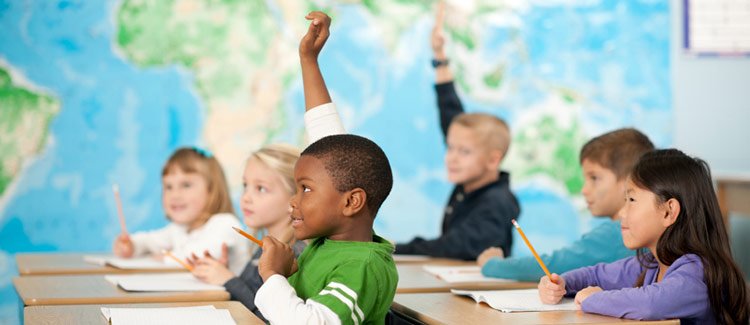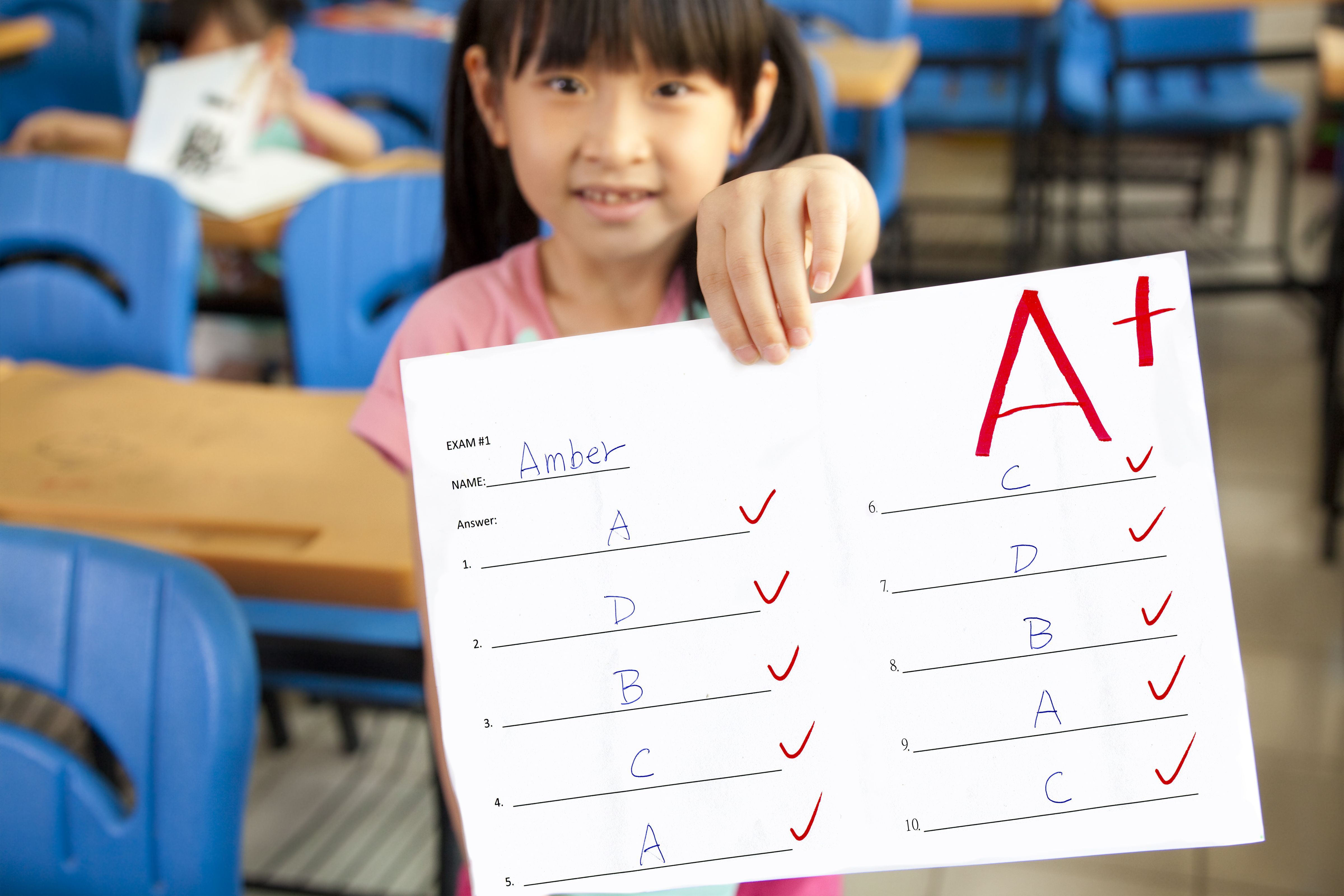Why Kindergarten encourages creativity and curiosity in early learners
Wiki Article
Everything about Kindergarten: Understanding the Value of Very Early Youth Education And Learning Programs
Kindergarten offers as a critical point in a youngster's very early advancement. It introduces fundamental skills crucial for future understanding and social communications. With different activities, children engage in organized play that promotes cognitive development. Recognizing the nuances of different preschool programs can better brighten their importance. What specific advantages do these very early education and learning experiences use, and exactly how do they shape a youngster's trajectory? The responses might be much more intricate than one may anticipate.
The Role of Preschool in Child Development
Although some may see kindergarten simply as a transition stage prior to formal education, it plays a necessary role in child advancement. This fundamental phase promotes vital social, emotional, and cognitive skills that are essential for lifelong knowing. In kindergarten, kids participate in structured play, which improves their capability to work together, share, and resolve problems with peers. These communications prepared for healthy and balanced relationships and enhanced interaction skills.On top of that, preschool presents youngsters to fundamental concepts in proficiency and numeracy, triggering inquisitiveness and a love for knowing. Teachers lead students via tasks that advertise essential and analytical thinking, necessary parts of intellectual development. Moreover, the setting stresses regular and structure, aiding children create self-discipline and independence. By concentrating on holistic development, preschool assurances that children are not just ready academically but additionally socially and psychologically for the difficulties of future academic undertakings.
Trick Advantages of Early Youth Education
Early childhood education uses numerous advantages that can considerably affect a kid's growth and future success. Research shows that youngsters who join high quality early education and learning programs show improved cognitive abilities, far better language growth, and improved social skills contrasted to their peers that do not go to such programs. These fundamental abilities are vital as they establish the stage for academic accomplishment and long-lasting learning.Furthermore, early education promotes psychological advancement by providing children with possibilities for cooperative play and dispute resolution, aiding them develop resilience and compassion. Grade School Peoria. Furthermore, these programs typically assist bridge the gap for children from diverse backgrounds, ensuring fair access to finding out resources and experiences
Ultimately, purchasing very early childhood education not just advantages individual kids however likewise adds to stronger neighborhoods, as informed individuals are much more most likely to engage positively in culture and the workforce.
Different Kinds of Preschool Programs
Different kindergarten programs deal with different educational philosophies and demands. Full-day alternatives provide extended understanding time, while the Montessori technique highlights freedom and hands-on experiences. Furthermore, play-based discovering techniques foster imagination and social abilities, highlighting the diversity in early youth education and learning.Full-Day Preschool Options
Many moms and dads and teachers recognize the growing importance of full-day kindergarten options in very early youth education and learning. Full-day programs normally provide a more thorough learning experience, allowing children to participate in a range of activities throughout the day. These alternatives commonly include a well balanced curriculum that incorporates scholastic, social, and emotional development. Some districts provide traditional full-day preschool, while others may offer specialized programs, such as double language or thematic learning atmospheres. Furthermore, full-day preschool can fit working parents by straightening college hours with typical job routines. Study suggests that pupils in full-day programs typically demonstrate enhanced academic efficiency and social abilities contrasted to their peers in half-day setups, making these choices progressively preferred in lots of communities.Montessori Technique Overview
The Montessori approach is just one of several educational approaches, it has actually acquired considerable attention for its unique focus on child-led learning and expedition. Developed by Dr. Maria Montessori, this approach concentrates on cultivating self-reliance and self-directed task in youngsters. Class are usually made to encourage motion and hands-on interaction with products, permitting kids to find out at their own rate. Montessori educators function as guides, assisting in learning via monitoring as opposed to straight direction. This technique focuses on mixed-age class, promoting collaboration and peer understanding. In addition, the Montessori method highlights practical life skills and sensory activities, helping children develop a strong foundation in both social and academic competencies. Moms and dads frequently value the holistic development that this technique supports in their children.Play-Based Learning Methods
Play-based learning methods are important to countless preschool programs, emphasizing the significance of play as an essential setting of finding out for young kids. These strategies urge exploration, creative thinking, and social interaction, permitting kids to engage in hands-on experiences that cultivate cognitive and emotional growth. Different kinds of play, such as imaginative, positive, and physical play, are made use of to sustain learning objectives across subjects like proficiency, scientific research, and math. In addition, play-based programs commonly incorporate collaborative activities, promoting synergy and interaction skills. Educators observe and assist youngsters during play, guaranteeing that finding out results are achieved while preserving a joyful learning environment. This technique not only improves scholastic preparedness but additionally cultivates a long-lasting love for learning, making it a crucial element of early youth education and learning.The Value of Play in Understanding
A considerable body of study underscores the important role of play in early childhood years education, highlighting its profound influence on knowing and advancement. Play acts as an essential system whereby young youngsters explore their atmosphere, establish cognitive skills, and boost their analytic capacities. Taking part in creative play enables youngsters to try out different roles and situations, fostering creative thinking and crucial reasoning.In addition, play-based knowing urges kids to engage with materials and concepts in a hands-on manner, making abstract ideas a lot more understandable and substantial. This experiential discovering method not just catches youngsters's rate of interest yet likewise advertises innate inspiration, fundamental for long-lasting discovering.
With play, youngsters also refine their motor abilities and spatial awareness, preparing for extra intricate academic tasks. Basically, focusing on play in very early childhood education programs is essential for supporting holistic growth, furnishing children with the fundamental skills required for their future instructional journeys.
Social Abilities Advancement in Kindergarten
Structure on the structure established with play, kindergarten acts as an important setting for social skills growth. During this developmental stage, kids take part in organized activities that motivate communication with peers. With team tasks, cooperative games, and shared tasks, they learn necessary abilities such as compassion, communication, and problem resolution.Educators assist in these interactions, leading kids in understanding social cues and fostering positive partnerships. As children navigate different social scenarios, they develop a sense of belonging and discover to value diverse point of views.
Moreover, preschool supplies possibilities for children to exercise turn-taking, sharing, and settlement, which are crucial for building relationships. These experiences not just enhance social capability yet also add to psychological knowledge. Because of this, the social skills obtained in kindergarten prepared for effective communications in later educational setups and throughout life. The relevance of social abilities growth in preschool can not be overstated.
Adult Involvement in Very Early Education And Learning

When parents demonstrate a rate of interest in their my link child's education, it cultivates a positive attitude in the direction of understanding. When they feel supported, children are more most likely to develop a sense of belonging and motivation to succeed. In addition, adult participation can improve a kid's emotional wellness, bring about better strength in encountering college obstacles. Consequently, promoting a joint setting in between home and institution is necessary for maximizing very early academic experiences and end results.
Getting ready for the Shift to Elementary School
As youngsters approach the end of their preschool trip, getting ready for the modification to primary school comes to be increasingly vital. This shift calls for mindful planning and support from both parents and educators. Acquainting kids with the brand-new environment, regimens, and assumptions of elementary school can alleviate their anxiety and promote self-confidence.
Colleges usually give resource positioning sessions that present children to their future class and teachers, fostering a feeling of belonging. Additionally, parents can engage in discussions concerning the modifications in advance, highlighting the amazing opportunities for discovering and social communication.
Urging self-reliance in day-to-day tasks, such as adhering to a timetable and dressing, can additionally be valuable. Exercising essential abilities, such as letter acknowledgment and standard mathematics, prepares children academically for initial grade.
Ultimately, a collective initiative among moms and dads, instructors, and the community guarantees a smoother shift, laying a solid structure for an effective educational trip.
Often Asked Inquiries
What Credentials Should Kindergarten Educators Have?
Preschool instructors should possess a bachelor's degree in early youth education and learning or a related field, along with state accreditation. Additional credentials might include specialized training in youngster development, classroom management, and reliable mentor approaches.Just how Do I Select the Right Kindergarten Program?
To choose the best kindergarten program, one need to consider factors like educational program, mentor approaches, class dimension, instructor credentials, and parent reviews. Checking out facilities and observing interactions can additionally supply useful insights into the program's environment.What Should My Child Learn in Preschool?
In kindergarten, a child must discover foundational skills such as basic reading and writing, counting, social interactions, analytical, and motor abilities. These expertises promote cognitive growth and prepare them for future academic difficulties.Are There Age Demands for Kindergarten Registration?
Most states need kids to be 5 years of ages by a certain date, frequently September 1st, for kindergarten registration. Certain age needs can differ, so inspecting local school district regulations is crucial.Just How Can I Assistance My Youngster's Knowing in the house?
To support a child's understanding in your home, parents can develop a regular, provide engaging academic products, encourage reading, join hands-on activities, and foster open communication to nurture curiosity and important Related Site reasoning abilities.Kindergarten serves as an important phase in a kid's early growth. Some might watch kindergarten simply as a transition phase prior to formal schooling, it plays an important duty in youngster growth. In enhancement, kindergarten introduces children to standard ideas in literacy and numeracy, stimulating curiosity and a love for knowing. Play-based understanding methods are indispensable to various kindergarten programs, emphasizing the relevance of play as an essential mode of learning for young youngsters. In preschool, a child ought to find out fundamental abilities such as fundamental reading and writing, counting, social communications, analytic, and motor skills.
Report this wiki page